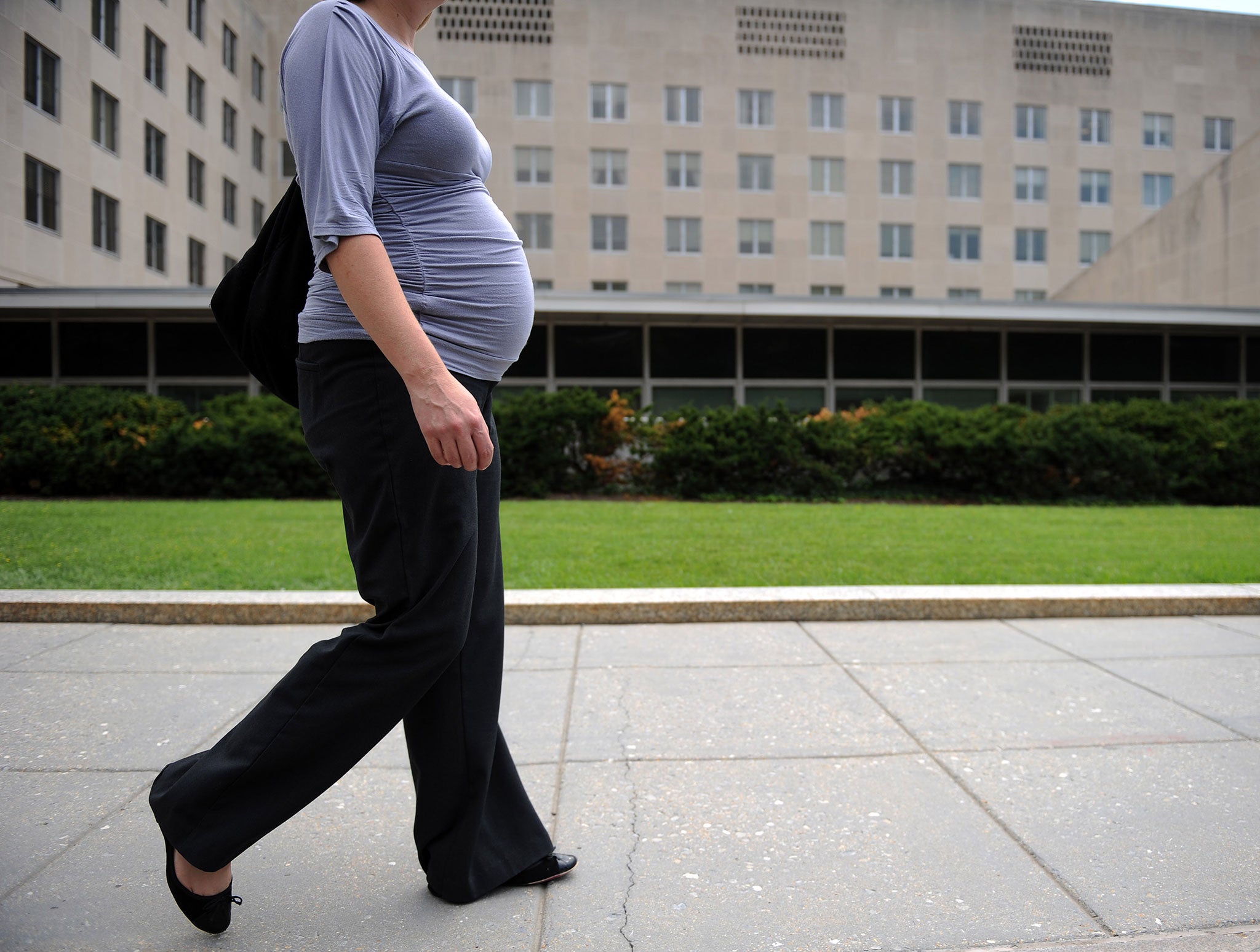Mothers warned eating too much fish 'can increase chances of obesity-prone baby'
Scientists believe the trend may be linked to pollutant chemicals in fish which may have hormonal effects

Your support helps us to tell the story
From reproductive rights to climate change to Big Tech, The Independent is on the ground when the story is developing. Whether it's investigating the financials of Elon Musk's pro-Trump PAC or producing our latest documentary, 'The A Word', which shines a light on the American women fighting for reproductive rights, we know how important it is to parse out the facts from the messaging.
At such a critical moment in US history, we need reporters on the ground. Your donation allows us to keep sending journalists to speak to both sides of the story.
The Independent is trusted by Americans across the entire political spectrum. And unlike many other quality news outlets, we choose not to lock Americans out of our reporting and analysis with paywalls. We believe quality journalism should be available to everyone, paid for by those who can afford it.
Your support makes all the difference.Eating too much fish can increase a mother's chances of giving birth to an obesity-prone baby, research has shown.
A large study found that eating fish more than three times a week raised the risk of an infant growing into an overweight or obese child by up to 22%
Fish consumption was also associated with rapid infant growth between birth and two years of age.
Scientists believe the trend may be linked to pollutant chemicals in fish which may have hormonal effects - although they admit this is speculation.
The study drew together data on 26,184 pregnant women and their children in Europe and the US.
Typical fish intake during pregnancy ranged from once every two weeks in Belgium to 4.45 times a week in Spain.
The authors, led by Dr Leda Chatzi, from the University of Crete in Greece, wrote: "Contamination by environmental pollutants in fish could provide an explanation for the observed association between high fish intake in pregnancy and increased childhood adiposity."
But they added that in the absence of information about exposure to organic pollutants by the study participants "our hypothesis ... remains speculative".
Of the children studied, 3,476 (15.2%) were overweight or obese at ages four and six.
High fish consumption increased the risk of a child being overweight or obese at four years old by 14% and at six years old by 22%.
In girls, eating fish more than three times a week was associated with a 31% increased risk of rapid growth early in life.
The effects were generally greater in girls than in boys, the researchers reported in the journal JAMA Pediatrics.
Andrew Whitelaw, emeritus Professor of Neonatal Medicine at the University of Bristol, said: "While eating fish in general are high protein and fatty fish provide valuable omega-3 fatty acids, there is now a question as to how much harm might result from accumulation of marine pollutants such as methyl mercury and organic compounds.
"Pregnant women have been encouraged to eat some fish but warned to limit consumption of fish to three times per week, particularly of salmon. Other previous laboratory research has suggested that feeding mice on salmon containing organic pollutants can induce type 2 diabetes."
Other experts urged caution. Nutritionist Professor Tom Sanders, from King's College London, said: "Infant feeding practice in the first year of life is the biggest factor influencing rate of growth.
"Breastfed infants grow more slowly than bottle-fed infants, who are more like to show accelerated growth because they are overfed. This analysis did not adjust for infant feeding practice, which is likely to be serious confounding factor.
"The study makes the assertion that the difference in weight gain may be the result of long-term effects of persistent pollutants. However, this is purely speculative and not based on measurement of exposure to these pollutants."
Statistician Professor Kevin McConway, from The Open University, said: "This type of study can't show that it was the mothers' fish eating that caused the increased risk of overweight children. Probably the children of mothers who ate fish more often differed from the rest in other ways too, and perhaps it's these other ways that increase the risk of overweight."
Press Association
Join our commenting forum
Join thought-provoking conversations, follow other Independent readers and see their replies
Comments